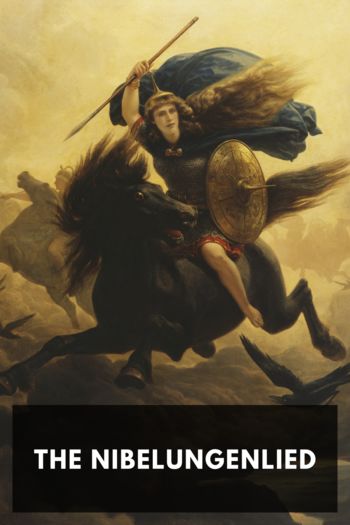The Trials of Radclyffe Hall, Diana Souhami [best sales books of all time .TXT] 📗

- Author: Diana Souhami
Book online «The Trials of Radclyffe Hall, Diana Souhami [best sales books of all time .TXT] 📗». Author Diana Souhami
She delayed going out to Malta until March 1914. Troubridge met her on his barge and paraded her as the Rear-Admiral’s wife. She lunched on board the Enchantress, watched him playing polo and dined with ambassadors and their wives. Her respite was to take singing lessons, go to rehearsals and first nights at the Malta Opera House, read Quo Vadis in Italian and Principii Elementari di Musici by Federico Parisini and do etchings. By the end of the year, she had finished her Nijinsky sculpture, modelled seven heads and done seventy-five drawings. She had heard The Pearl Fishers ten times, Tosca three, Rigoletto twelve and La Bohème fifteen.
Troubridge objected to her artistic and intellectual pursuits. He was unimpressed when the Daily Malta Chronicle commended her ‘cultured voice of remarkable range and sweetness’. He wanted her to focus her life on him and urged her to regard art and singing as ‘diversions’. ‘I have never really wished you to work at anything that would occupy you away from me’, he told her. ‘I would much rather you were not engrossed in anything else.’
Marriage to Una proved a trial for him. She was neither deferential nor malleable nor even pleased to see him. Her intellectual energy undermined him and she warred with his family. But the 1914 war proved a greater trial and undermined him more. At its outbreak in August 1914, Winston Churchill was the First Lord of the Admiralty. Troubridge, a Rear-Admiral, was in command of a fleet of armed ships in the Mediterranean. Early in August, he was instructed to intercept two enemy cruisers, the Goeben and the Breslau. These ships had bombarded ports at Philipville and Bone, escaped, sailed on to Messina and were heading for the Dardanelles.
Troubridge’s squadron had four cruisers with nine-inch guns. The two German ships had eleven-inch guns. He aimed to close on them in darkness then fight them at first light. He pursued them on the night of 6 August. He hoped for mist and rain, but the night was clear. By four a.m. he considered that he was too far away from them and that at first light his ships would be in unequal danger from their superior guns. He gave up the chase and returned to the Adriatic.
The Goeben and Breslau sailed on unchallenged to the Dardanelles. Turkey had joined with Germany against the Allies. Russia’s access to the Black Sea was sealed off by these ships. Battles in Gallipoli, Mesopotamia and the Middle East followed with huge loss of life. According to Churchill, the incident brought ‘more slaughter, more misery and ruin than has ever before been brought within the compass of a ship’.
An exhaustive inquiry was held, fuelled by Churchill’s anger and contempt. Troubridge returned to England in September to give account. Una travelled with him. The papers were full of it and there was a photograph of her in the Tatler. Troubridge asked the Admiralty for a trial by court martial in an endeavour to clear his name. ‘He did forbear to chase HIGM’s ship Goeben being an enemy then flying’ was the charge. The hearing was from 5–11 November 1914. It was a secret affair, conducted by other admirals and led by Sir Leslie Scott, KC. There were daily sittings, including Sunday. Una took to her bed for the entire proceedings. Troubridge was ‘fully and honourably’ acquitted of blame. But though technically absolved he lived with the taint of cowardice. It was not a war where rational retreat was commended. Those who were thought honourable died in the fight.
For four months he was not asked to return to his ship or given another appointment. To avoid an imminent question in parliament as to why, Churchill summoned him in March 1915 for an interview. He did not look up from his desk when Troubridge entered, nor did he ask him to sit down. He said, ‘Troubridge, I have an appointment to offer you, but as it is in the forefront of the battle, I think you may not care to accept it.’
Una asked her husband how he responded to this insult. ‘He said to me, “I am a naval officer and I reminded myself that discipline must be preserved. I told the First Lord that I was ready to accept any appointment that would be useful to my country in time of war.”’ He was sent to Belgrade to command the forces defending the Danube. It was a post that banished him to obscurity. He never went to sea again ‘and he was fanatically a sea sailor’. It was a post, too, that banished him from his wife. If adversity is the testing ground of love, she failed. Months of his enforced company and the social stigma she felt he had inflicted on her played on her nerves and provoked her headaches. Any residual interest she had in him evaporated. She offered no sympathy, no further support. ‘Think of my pride’, he had said when he asked for trial by court martial. Una thought of herself. His absence gave her space to pursue Radclyffe Hall, a social humiliation to Troubridge that inspired him with rage, called for revenge and barred him from London life.
9
Chenille caterpillars
Ladye chronicled every meeting between John and Una. Her diary was her testimony to the betrayal of trust: ‘Una here to breakfast. She lunched with John and saw The Man Who Stayed at Home. I took Cara to see Romance and we had tea out. Una to dinner as usual. I slept badly and felt





Comments (0)